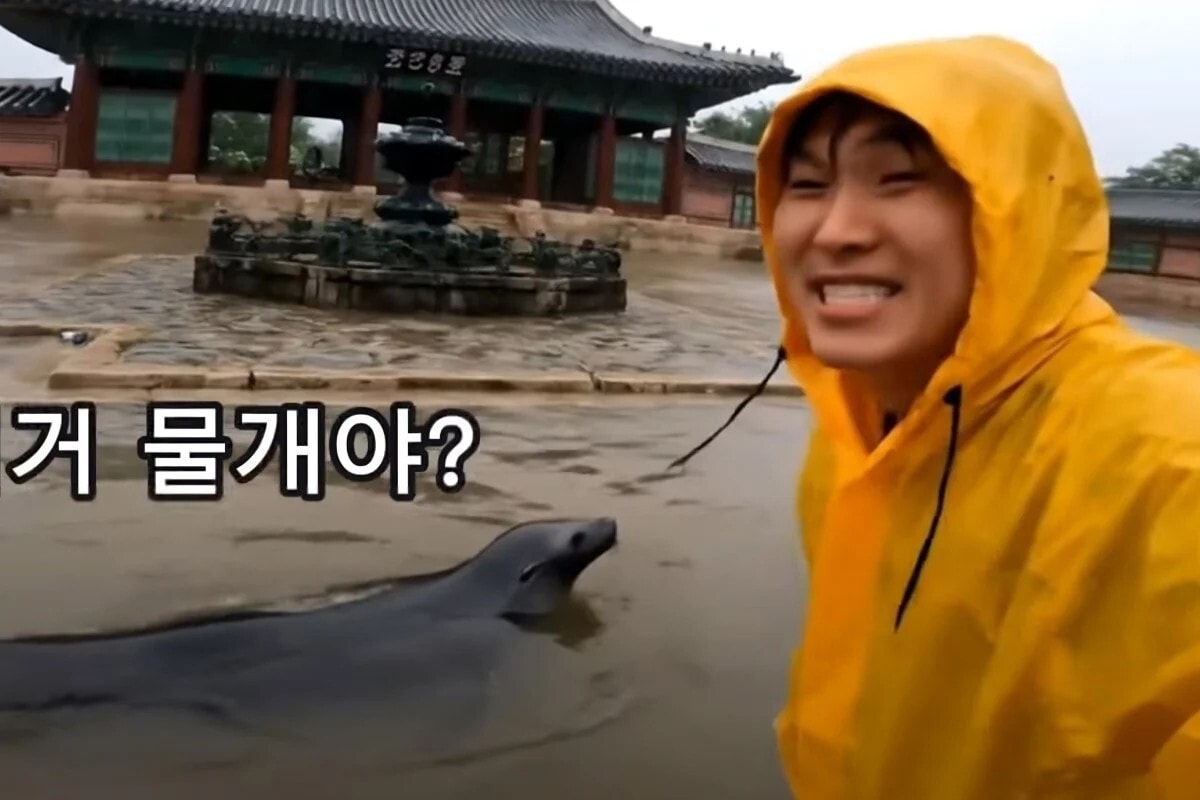AI video of fake Gyeongbokgung flood causes shock, raises concerns of information manipulation
The explosion of AI video-generating technology is posing a major challenge to fake news in South Korea, as a clip simulating a flooded Gyeongbokgung Palace goes viral.
AI video of Gyeongbokgung Palace flood shocks public opinion
A video created using artificial intelligence (AI) simulating the scene of Gyeongbokgung Palace in Seoul submerged in water is causing a stir in the Korean online community.
The clip, posted by YouTube channel “Golpadak,” opens with a man in a yellow raincoat standing in front of the palace, saying: “It’s raining so hard… Gyeongbokgung is completely flooded.” It is followed by scenes of people bailing water with buckets and even a seal sliding across the palace grounds.
Despite its absurd details, the video still made many people believe it was real because it coincided with the time when Seoul suffered record-breaking rain.
The video was later confirmed to be a product of Google's Veo 3, which allows for lifelike images and realistic dialogue. Many people expressed outrage, saying the creator should be punished for deliberately spreading false information.
Deepfake concerns and the challenge of information control
The Gyeongbokgung flood fake video incident is not an isolated incident. Dozens of similar fake videos about flooding have appeared on YouTube, causing strong reactions from the media and experts. They warn that the public is increasingly being fooled by AI-generated content, even when the details in the videos are somewhat absurd.

Previously, another fake video simulating lava flowing through the center of Seoul also caused confusion among viewers. The creator of this video, YouTuber “Ddalgak”, said the purpose was to satirize the gullibility of internet users when it comes to online content. He also admitted to using Veo 3 to create the video, which was inspired by a scam involving Elon Musk deepfake.

South Korea Strengthens Control: AI Act and Loopholes
In response to the widespread deepfake wave, South Korea enacted the “AI Basic Act”, which will take effect in January 2026. This law requires all AI videos to be watermarked so that viewers can easily identify them. However, experts are concerned that watermarks can be easily removed or edited, reducing the deterrent effect of this measure.
Mr. Choi Byung-ho, an expert at the AI Research Institute of Korea University, commented: "If AI companies develop technology to help identify fake content, it will reduce social costs and be more effective than administrative measures."
Deepfake: From entertainment to fraud and political manipulation
Deepfakes are no longer just for entertainment or satire, but are becoming tools for serious illegal activities. They are being used to create offensive content without consent, financial fraud, and even political manipulation.
During last year’s National Assembly elections, South Korea’s national election agency detected and handled more than 120 fake AI images and videos. This has led to a clear public disclosure requirement when using AI in campaign content to ensure transparency and fairness for voters.
The rapid development of deepfake technology requires more effective control and identification measures to protect people from misinformation and potential scams.




.jpg)
